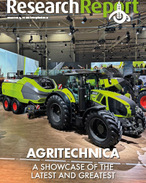This article is 3 years old. Images might not display.
Grains Research and Development Corporation (GRDC) National Grain Storage Extension Project Coordinator, Chris Warrick, discussed what growers should be doing to prepare silos to store wet grain in a recent GRDC podcast.
Warrick said while some growers might choose to delay harvest, giving crops the chance to dry out and get back to the desired deliverable moisture content, others might have to harvest wet grain to avoid future rainfall events.
"Preparing silos so growers have the option to take grain off the above deliverable moisture content is a tool they can use to manage the difficult logistics of a wet harvest," Warrick said.
"The ideal set up at a time like this is having drying facilities available, however, that won't be the case for a lot of growers and it may not be possible for them to access this equipment so close to harvest," he said.
"The second most common management option and one that can be underutilised by the industry is aeration cooling. Growers can use aeration cooling to hold grain, preventing it from moulding, until it can be dried or blended with dry grain to sell.
Warrick explained that the most important factor to consider when using aeration cooling to store wet grain is ensuring the system is set up to match what growers want to do with it.
"Drying with aeration requires really high airflow. Growers will need 15 litres of air per second per tonne or more to carry the moisture out of the grain," Warrick said.
"Aeration cooling only requires two to four litres of air per second per tonne and can be retro-fitted to cone bottom silos, sheds and bunker sites," he said.
"If you are going to store grain with higher moisture, make sure you're monitoring it regularly. Smell the air, check the temperatures and ensure it's cooling down, not heating up.
"When using aeration cooling fans to hold higher moisture grain, growers will need to run fans continuously whenever ambient conditions are under 85 per cent relative humidity, regardless of temperature. Without constant airflow, higher moisture grain is likely to heat, sweat and turn mouldy.
"I'd also advise growers put actions in place to make this easier now, making sure they can monitor their systems easily and ensure the air running through the grain is meeting expectations.
"If growers are planning to retain seed from this harvest, they should be prioritising these crops to maintain the seed's quality.
"Give priority to retaining seed, get it in the silo and store it at a low moisture content and in cool temperatures.
"This will ensure a high germination percentage and greater seedling vigour can be maintained through sowing in 2024.
"Ideally seed should be stored in silos with aeration cooling, an alternative is to harvest seed during the cooler parts of the day as grain will hold that cooler temperature during storage," Warrick said.
The GRDC has a range of videos to help with grain storage which can be viewed here: https://bit.ly/3gOR1Tv























